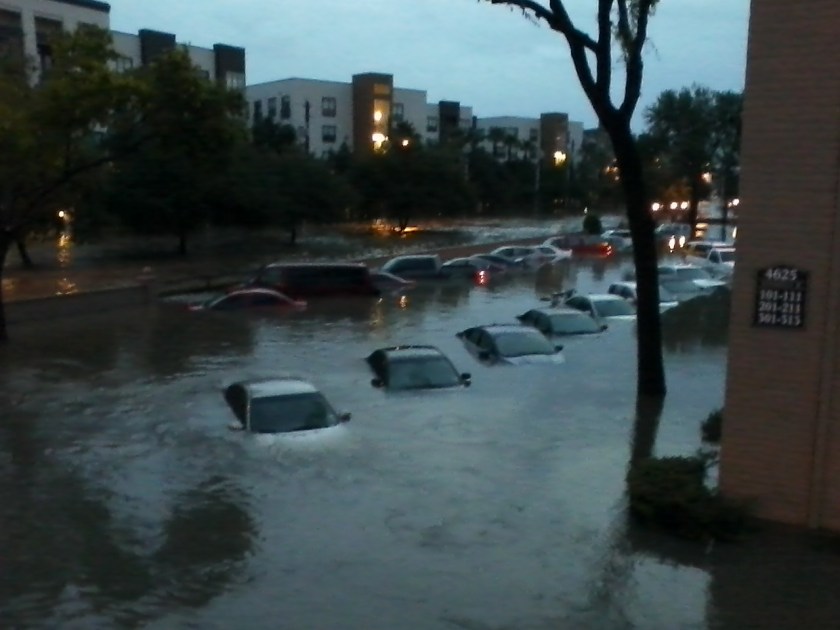The catastrophic flooding in Houston brings back terrible memories of the flood I experienced during the early morning hours of Tuesday, May 26, 2015 when my apartment in the Meyerland area of Houston took on three feet of water and I lost most of my belongings including my car. There was no warning that the Brays Bayou would leave its banks that night. My Meyergrove apartment has flooded again twice since I left Houston in September 2015: once on April 18, 2016, and again this weekend. This frequency of flooding is unprecedented in that area of Houston.

Everyone with a ground floor apartment lost most of their belongings in my apartment complex during the Memorial Day Weekend 2015 flood. No one I talked to had flood insurance, and everyone had renter’s insurance that did not cover their flood damage, so they lost a lot.

Which brings up an important point. Why are there not laws to require lessors to disclose to renters when the apartment or house they are renting sits in a flood plain? If the lessor has flood insurance on their property, then they should be required to inform their tenants of that fact and clearly communicate that the tenant should purchase flood insurance in addition to their renter’s insurance. After all, when you are buying a house, you cannot get a home loan unless you purchase flood insurance if you are living in a flood-prone area. Why do not renters have the same protection?
Perhaps there are other areas of the country where landlords have to disclose to their renters if they will be living in a flood plain, but there appears to be no such protection for renters in the state of Texas.
Jake Johnson of Madison recently wrote a letter to the editor that was published in The Dodgeville Chronicle and The Capital Times, stating
“Some states (including Wisconsin) mandate flood-risk disclosure for new homebuyers and renters—so they know if they need flood insurance, if they are moving into a floodplain, if the home has flood damage or if previous owners made a flood insurance claim. Unfortunately, many states do not have any warning system in place, so many folks are moving into homes and then completely blindsided once the flood waters begin to rise. This is simply immoral and it’s hurting families. The time has come for a commonsense nationwide law that gives new homebuyers and renters all of the information they need to be safe and well prepared. Congress has it in their hands to [include] flood risk disclosure this December in their required reauthorization of the National Flood Insurance Program.”
I was one of the many victims of non-disclosure that Jake Johnson writes about. I lost so many of my belongings in the Memorial Day Weekend flood of 2015 in Houston, some of them irreplaceable. There was no warning, and no time to save anything. I will likely be paying off a Small Business Administration (SBA/FEMA) loan for the rest of my life, and my retirement will likely be delayed by several years because of the many losses and expenses I sustained as a result of that flood. That’s too bad, because all my adult life I have been looking forward to finally having the opportunity to devote myself fully to astronomy education, outreach, and research, and promoting the use of environmentally-friendly outdoor lighting. So, yes, a single flood event can change your whole life.
References
Johnson, Jake (2017, October 25). Flood-risk disclosure needed [Letter to the editor]. The Dodgeville Chronicle. https://thedodgevillechronicle.com/main.asp?SectionID=12&SubSectionID=33&ArticleID=8422.